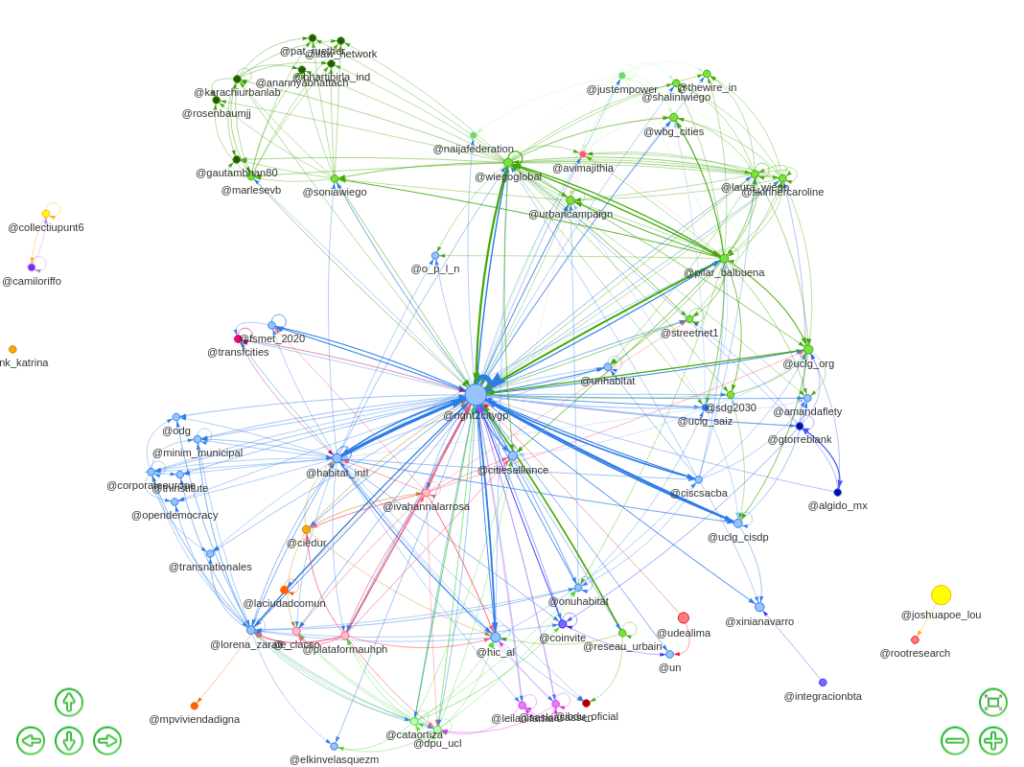The Global Platform for the Right to the City (GPR2C) participated in the High Level Political Forum (HLPF) 2020 in order to launch an urgent appeal to the United Nations and all international, regional, national and local institutions and civil society organizations to work together in the implementation of the, SDGs and NUA through the Right to the City to respond to these global crisis and advance towards a long-term structural transformation of our cities and communities.
The Right to the City is key to achieving cities and human settlements that are just, inclusive, safe, sustainable and democratic, defined as common goods for enjoying life with dignity and peace.
On this occasion the GPR2C co-organized two events: an Urban Thinkers Campus, with WIEGO, about Informal Workers & COVID-19 and an online event about Fulfilling SDG11 and the NUA beyond the COVID-19 pandemic through the Right to the City.
The GPR2C also launched a campaign on social networks to give visibility to the messages and initiatives that our members and allies have developed on the ground in response to the pandemic and to illustrate the importance of implementing the Right to the City to face global crises.
Fulfilling SDG11 and the NUA beyond the COVID-19 pandemic through the Right to the City
The GPR2C Platform held an online event on Thursday 16th of July 2020. In total, we registered 65 participants from all over the world.
During the event GPR2C members and allies from local governments, international organizations and civil society networks presented possible paths provided by the Right to the City to face the Covid-19 crises through the lenses of global Agendas: 2030 Agenda and the New Urban Agenda, focusing on the urge to move towards long-term transformations.
This event gave the opportunity to exchange on central themes of the Right to the City. Concrete examples of actions in favour of the most vulnerable, who are also the most affected by the pandemic, were identified by the participants.
- Emergency measures and the urge to move towards long-term transformations
Due to the pandemic, public authorities have had to put in place effective public policies to help people most in need (homeless people, informal workers, people living in informal settlements and slums, or far from public services, women). Partnerships with civil society have been crucial in designing and realizing these social policies.
- The relevance of addressing the situation with the Right to the City perspective & taking into account the Global Agendas
Cities have been on the front line to tackle COVID19 and its impacts. Participants noted that the cities that have committed to Right to the City components and Human Rights have dealt more efficiently with the crisis providing quick responses. In the same way, these transformations cannot be dissociated to implementing Global Agendas (SDGs and NUA) to move towards substantial structural transformations.
- Protection mechanisms and securing livelihoods, particularly in the informal economy:
Presentation of WIEGO’s 4R’s Framework to help informal workers.
Presentation of the battle from the civil society for a basic income in Brazil.
- Gender equality, violence against women, and the transition towards a care-based society:
Demands of women to be able to live in peace and be acknowledged as having a central place in the care of homes and communities.
- Racial justice:
The critical situation of people of colour in the US, which has led to a wave of demonstrations and debates on the right to housing and systemic racism all over the world.
The participants agreed that it is urgent to address this situation with the Right to the City perspective and taking into account the Global Agendas.
You will find the report event here.
You can watch the entire event here.
Urban Thinkers Campus: Informal Workers & COVID-19
Another relevant event was the Urban Thinkers Campus hosted by WIEGO on Wednesday, 14 July 2020, about: Informal Workers & COVID-19: Impact and Vision for the Future. During this virtual event experts from WIEGO’s Urban Policies Programme provided detailed insights on the impact of the COVID-19 crisis on urban informal workers while exploring creative policy and planning responses.
You can read more about this event here.
Impacts of the #Right to the City campaign on #HLPF2020
Under the framework of the 2020 HLPF, the GPR2C launched a social media campaign focused on the importance of implementing the Right to the City to face Global Crises. The main goal of the campaign was to give visibility to our messages and initiatives of our members and allies to address the pandemic making way for structural transformation, using the HT: #Righttothecity #Derechoalaciudad #Droitàlaville and #HLPF2020.
Here is a family photo (a graph) of the main accounts of the campaign showing how they related to each other (who makes rt and who mentions who), you can see how different members and allies of the GPR2C have engaged in the conversation, as well as other actors, such as UN agencies.

Thank you to everyone who participated in this Right to the City campaign.
Let’s continue to join forces to build the paths for long-term transformation by addressing the objectives of global agendas and the Right to the City!














